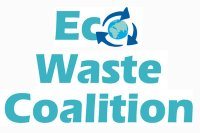EcoWaste to candidates: Fight dirty cosmetics
MANILA, Philippines — If elected, senatorial and congressional candidates in the 2019 elections should craft a “special law” on adulterated and counterfeit cosmetics, the EcoWaste Coalition said Thursday.
The environment watchdog made the call amid the unabated sale of skin whitening products laced with mercury, which, it said, posed a serious threat to the health of Filipino women and children.
The group noted that current laws and regulations were not enough to stop the sale of dangerous products.
“As prevailing laws and regulations, including fines and penalties for non-compliance, are insufficient to stop the sale of these dangerous products, we urge aspiring senators and District Representatives to craft a special law on adulterated and counterfeit cosmetics,” EcoWaste Coalition Chemical Safety Campaigner Thony Dizon said in a statement.
Dizon pointed out that despite current efforts of health authorities, particularly the Food and Drug Administration (FDA), dangerous products from China are still being sold in the market.
Article continues after this advertisement“Health authorities, particularly the Food and Drug Administration (FDA), have made considerable efforts to curb the illegal sale of mercury-contaminated cosmetics such as skin lightening or whitening facial creams,” Dizon said.
Article continues after this advertisement“Current efforts have not, however, been adequate to put an end to the continued proliferation of such dangerous products in the market. FDA-banned products like Jiaoli and S’Zitang from China are still being sold with impunity,” he added.
He said that erring importers, manufacturers, distributors, “must be held accountable and brought before the bar to show zero tolerance” for the act.
The group noted how mercury can cause damage to the nervous, immune and renal systems. It can also cause skin discoloration, rashes, scarring, and reduce dermal resistance to bacterial and fungal infections.
Mercury can also affect the endocrine and reproductive systems, the group said, adding that babies in wombs are “not spared.”
“Babies in the womb are not spared as mercury can cross the placenta during pregnancy and affect the developing brain and nervous system causing cognitive development problems. Fetuses, infants and young children are susceptible to mercury toxicity,” Dizon said.
Lastly, EcoWaste said mercury in skin whitening products can contaminate the environment, including the food chain.
Citing information from the World Health Organization (WHO), EcoWaste said “mercury in soaps, creams and other cosmetic products is eventually discharged into wastewater. The mercury then enters the environment, where it becomes methylated and enters the food chain as the highly toxic methylmercury in fish.”
The group advised consumers to refrain from using skin bleaching, lightening or whitening products, particularly cosmetics not registered with the FDA and not guaranteed safe from mercury, hydroquinone and other harmful substances. /cbb
